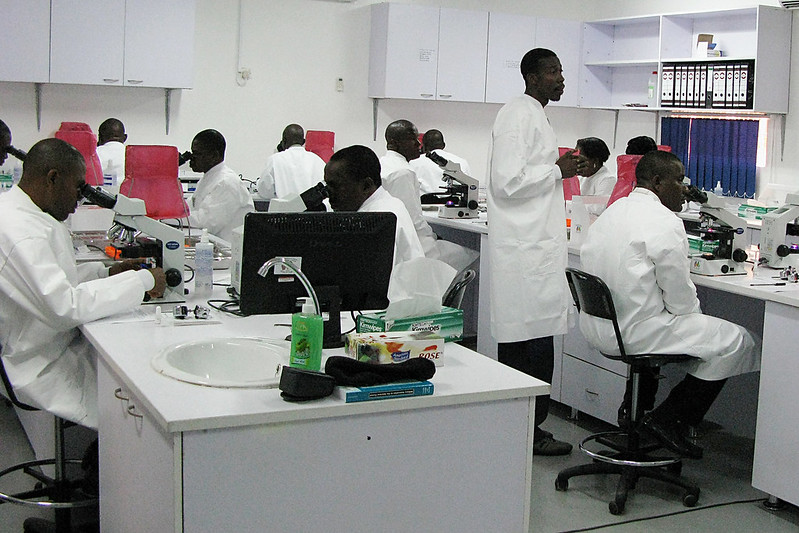How African Governments Are Combating HIV/AIDS

The threat of the COVID-19 pandemic is still a major problem today. A variety of problems continue to affect the globe, such as poverty and HIV/AIDS, the latter of which has severely affected Africa for years. Globally, estimates indicated that HIV infected 33.9 to 43.8 million people by the end of 2021 and nearly two-thirds of those infected were Africans. However, the situation is far from hopeless as African governments are combating HIV/AIDS and some progress is occurring on that front.
The Current Situation in Africa
According to reports by the Joint United Nations Programme on HIV/AIDS (UNAIDS), new HIV infections have declined by 14% between 2010 and 2015 in Eastern and Southern Africa. Similarly, there was an 8% decline in West and Central Africa. Despite the small percentages, progress is obvious. In 2000, only 11,000 people were getting antiretroviral treatment (ARV) for HIV. Now, more than 12 million people today are receiving the treatment. African governments that are combating HIV/AIDS have also expanded prevention methods to stop the spread of HIV/AIDS. Some of the prevention methods are voluntary medical male circumcision and tests for pregnant women to see if they are HIV positive. Those who are positive receive medicine in order to prevent the transmission of HIV/AIDS to their unborn babies. Hence, there has been a decrease in infections throughout the region.
Despite the progress, the epidemic still severely affects African countries. Poverty and the COVID-19 pandemic only further exacerbate this issue. HIV/AIDS affects the region socially and economically. There are still a large number of people who are not receiving the treatment they need and the cure has yet to emerge. Sub-Saharan Africa suffers the most as it is the world’s epicenter of HIV/AIDS, accounting for two-thirds of the global total of new HIV infections. Progress continues to be slow and multiple challenges remain.
Response and Progress to End HIV/AIDS
Currently, African governments are aiming to put an end to the HIV/AIDS epidemic worldwide by 2030. They have partnered with multiple organizations such as UNAIDS, PEPFAR and other global health organizations to realize this goal. Together, they are working tirelessly to respond and accelerate progress in the continent. Access to condoms and lubricants for men is increasing, programs encouraging changes to sexual behavior are undergoing implementation and affordable methods to prevent infections are spreading.
The United States Global AIDS Coordinator and Special Representative for Health Diplomacy, Ambassador Dr. John Nkengasong launched “Reimagining PEPFAR’s Strategic Direction, Fulfilling America’s Promise to End the HIV/AIDS Pandemic by 2030.” According to UNAIDS, it focuses on key priority areas that include addressing health equity for children, adolescent girls, young women and other key populations. It also focuses on maintaining long-term sustainability, enhancing global health security, nurturing transformative partnerships and leading with science. UNAIDS has reported considerable success in many sub-Saharan African countries. The number of deaths that HIV/AIDS has caused in Sub-Saharan Africa has declined by 35% in recent years.
The Global Mission to End HIV/AIDS
Global efforts addressing the epidemic have shown promising signs. People in resource-poor countries like Africa that are receiving HIV treatment have increased dramatically over the past decade. PEPFAR has provided HIV testing services for more than 50 million people as of 2021. Additionally, 2.8 million babies were born HIV-free from parents living with it. The battle continues as African governments combating HIV/AIDS continue to work around the clock. They are strengthening public health systems and local capacity for preparedness and response to other diseases. Progress may be slow but efforts put forth by various organizations continue to provide promising results. Research is also progressing as many around the globe work to prevent further HIV infection and find a cure someday. So long as Africa and its people continue to fight the good fight, the goal to end the pandemic by 2030 may just be achievable.
– Aaron Luangkham
Photo: Flickr
